Sarifa Moola-Nernæs is an academic, African feminist, businesswoman, Ubuntu Life Coach and Speaker. She also works as a consultant at the Bjørnafjorden Municipality on refugee services, social and economic inclusion. Sarifa has a lot of diverse experience under her belt, including but not limited to, working for many years in the NGO sector and also as a DJ! In fact, it was her search for roots Reggae music that led her to meet her husband, who is Norwegian, and like many, she moved to Norway for love.
Sarifa understands the challenges of moving to a new country, having experienced it first hand, and over the past years, worked to assist people who relocate with integrating into the Norwegian society. She doesn’t take this job lightly and understands that her execution of her job plays a role in the wellness and sense of self of newly arrived immigrants. She believes that it is important to humanize foreigners in Norway, because together, we can collaboratively work for a more cohesive and successful society, that thrives on diversity.
Having lived through apartheid in South Africa, Sarifa understands all too well what happens when institutions and those with power to effect change ignore the needs and existence of a group of people on a basis of race, creed, label or whatever else qualifies them as the “other”. And while she still bears the scars of the apartheid structure, she has elevated herself to rise above the boundaries put in place to minimize the worth of people of colour. Her ability to surmount the brainwash of that racist construct can partly be credited to hailing from a matriarchal society, made up of strong women who encouraged her to be greater than herself and the limitations imposed by society. So, from an early age, she developed a strong work ethic and sense of self.
Sarifa’s experiences have cemented her personality, soft-spokeness, world view, outspokenness and inability to stay silent in the face of injustice. For Sarifa, it is imperative that in personal growth and development, we are bringing others along with us. In other words, if we are not helping others “cross” or thrive, then what is our achievement worth?
It is difficult to put Sarifa’s various layers and complexities to words. I mean, with these words, we are trying, but they hardly do her justice. What we can say is that it has been an absolute pleasure to know her and quite a privilege to listen and experience some of the workings of her mind. Like many of us, Sarifa is not without flaws or self-doubt, but we find it incredibly remarkable, how she acknowledges, learns, grows from and dust them off if need be. She has a growth mindset and is passionate about the causes, topics and people that hold her heart together.
She is a beautiful soul and rooted in her identity. When she’s not acquiring new knowledge or engaged in intellectual discourse on various topics, she enjoys spending time with her family and friends.
To read more about Sarifa, see below.
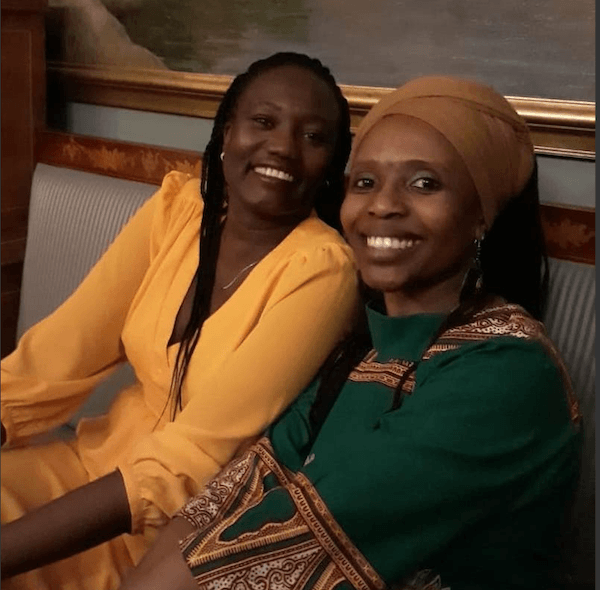
Can you tell us a bit about yourself and how you came to live in Norway?
I am a Makhuwa woman, a mother, wife, African feminist, Ubuntu Coach and a businesswoman. I am also employed as a consultant in “Flyktningtenesta” in the Bjørnafjorden Municipality. I am on the Expert Advisory Panel for Club de Madrid, a project that is working on Social Cohesion.
Ubuntu is a quality that includes the essential human virtues: compassion and humanity.
I have a PhD in Sociolinguistics from the University of Cape Town, a Masters in Peace Studies from the University of Bradford (where I met my husband) with a scholarship from the Canon Collins Education Trust for Southern Africa, and a bachelor’s degree from the University of South Africa. I worked for many years in the NGO community, and have extensive experience working with projects concerning youth, leadership development, peace and anti-racism education. I have assisted in coordinating youth exchange programmes organised by Umtapo Centre (where I worked in South Africa), and Springboard in Northern Ireland.
I ended up in Norway as a result of love for/and music. As a student in the UK, I wanted to earn a bit of extra money to send home, so I started working as a DJ. I needed some roots Reggae and found a Norwegian gentleman that helped me out by sharing his expansive collection of Reggae music and the rest is history.
You have worked for some years in the public sector, can you tell us about what your work involves?
I am currently employed as a consultant in Flyktningteneste (Refugee services) in Bjørnafjorden Municipality, which is a new municipality created by the merging of Fusa and Os Municipalities. I have been in this role since 2014. My work here was informed by earlier experiences of working for Hordaland Red Cross as a Refugee Guide Coordinator (Flyktninggaidkoordinator) in Kvam Municipality, and bolstered by prior experiences in the NGO sector and research sectors. More importantly, my work has been influenced by my own journey of moving to Norway, the challenges I encountered, my personal experience of the interactions with local people and the sense of belonging.
My work focuses on receiving, settling and facilitating inclusion for refugees based on the Introduction programme policy (Introloven) for settlement of refugees and asylum seekers in Norway. Being the only employee, I had to be creative and approach my work differently. Those who know and have worked with me, know that I like to use African proverbs. And the proverb, “It takes a village to raise a child” was very pertinent to the situation. I engaged the public and created working groups with the primary purpose of ensuring the success of the new people coming to the village. Success meant independence, self reliance and ability to contribute towards building society.
In Fusa, we managed to create spaces for new and old residents to meet, get to know each other and create their own network through Language Café, International Café (celebrating important days in the UN Calender), and providing Norwegian family friends. We also organised intensive programme around Norwegian and the local society, where participants received information from local services, organisations and businesses, as a way to not only motivate them, but to also expose them to an extended network. I also invited people who came to Norway as refugees to come tell their own sucess stories, to encourage and empower the newly settled members of Fusa. I think that it is imperative as people working in this sector to acknowledge that if we are not refugees, have not travelled that road, then we are not experts of the refugee narrative. Our role is to encourage people to share their stories.
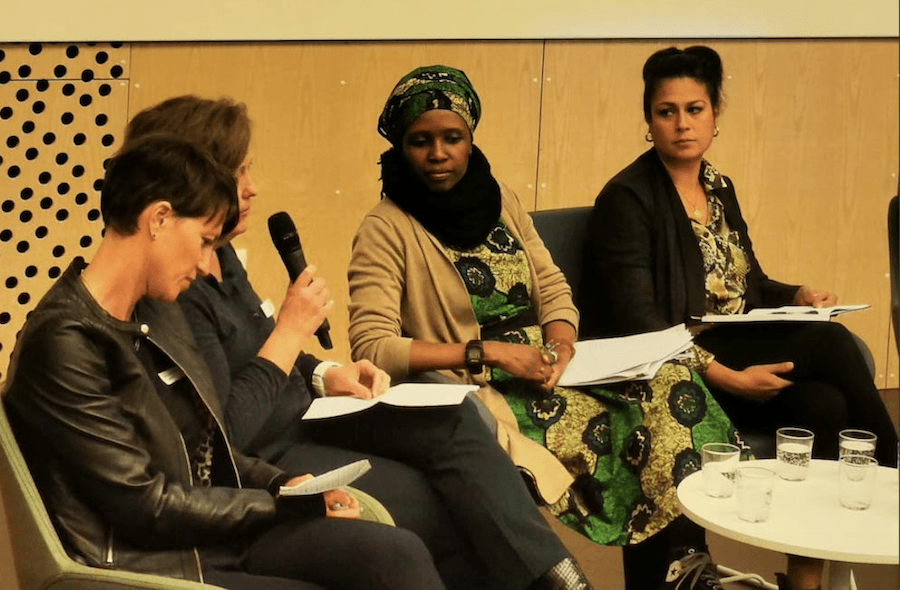
How does your work impact on integration and inclusion in Norway? And why is the work you do important in this regard?
While I am guided by the Introloven, I think that we need to remember that it is an assimilationist policy. In the simplest form, the focus has been to help adults to fit into the Norwegian society. The framework is based on structural barriers that make it difficult to access services and resources. However, there are constant changes being made to make the policy less rigid and more inclusive. Like the recent shift from the word “refugees” to immigrants, which also takes into consideration family reunification, and labour migrants.
I think that my work is helping to shift the way we meet and engage people. For me it is important that we reflect, look within and understand why we work in a certain way and the impacts of our actions. In many cases, we are the first contact refugees have with Norwegian society, so how we engage and interact with them determines the road ahead.
I believe that it is important to think outside the box, to be creative and develop a programme that would bring back humanity to people’s lives by giving them the voice to tell their own stories and guiding them towards becoming self-reliant and successful. We need to be honest with ourselves, in that we cannot empower people in a literal sense, but we can provide them with the necessary guidance and tools to empower themselves.
I strongly believe that our work is to guide refugees to navigate their own spaces. My work is to help people help themselves to become the best version of who they are, whilst they focus on this new opportunity and make it work for them and their families. At the same time, I work with the Municipality to adapt their approach to refugee services, think more holistically and sustainably, in a way that would not only benefit them but also build stronger relations within society. It is important to constantly engage the public, make them aware of the fact that they are important players in this process, that it is the responsibility of everyone in society (felles dugnad) to help us succeed with our work. It starts with a smile or Hei. A small gesture with a huge impact, that says I see you, you exist, you are human.
I think how I and other colleagues approach this work is important because it’s about giving “foreigners” a human face. My work is about collaboration and teamwork that requires everyone to play a role in order to become a successful society and to ensure that no one is left behind. It is also about changing the mindset and blinkers with which we meet and engage with each other.
We understand you also facilitate workshops/sessions outside of your public sector job. Can you speak more to this?
Yes. I have held 17th May speeches for six years in different villages in both Kvam and Fusa Municipalities. I have done motivational talks/workshops with young people in schools and facilitated workshops on anti-racism and diversity at Fusa Vidaregåande school. I also speak on topics about mental health, and help to organize, coordinate and speak at women’s day celebrations. The activities mentioned above have been part of the voluntary work that I do. I also have a consultancy business, Sarifa Moola-Nernæs (enk). Through my business I coach, facilitate Ubuntu women’s groups, conduct motivational talks and workshops.
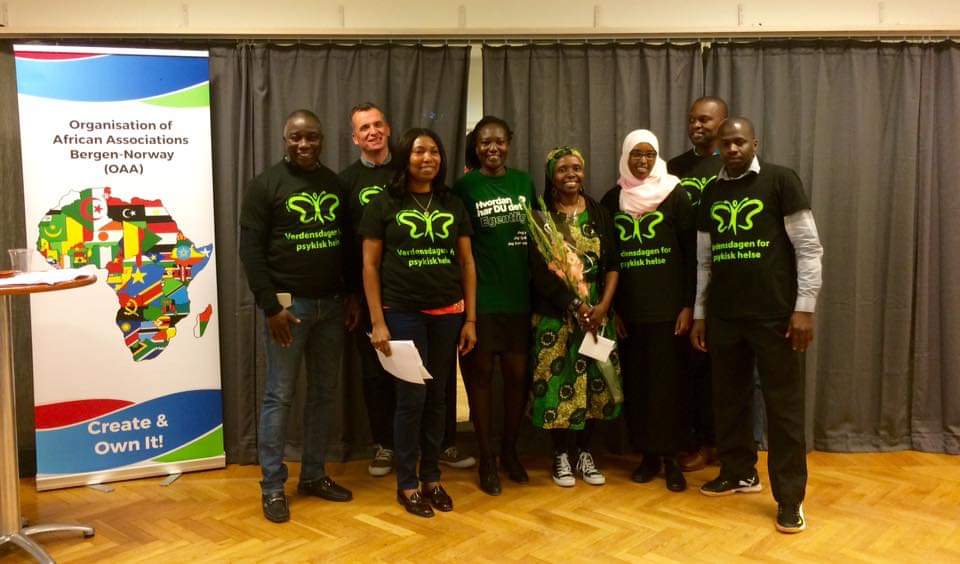
How has your international personal and professional background impacted the way you see the world?
I think that the way I was raised, during and after apartheid, my family values, the philosophy of Ubuntu, voluntary work, my education, work experience in different countries and travel have definitely impacted the way I see the world.
I come from a matrilineal society and had strong women around me. I was encouraged to study hard and work hard. I developed a work ethic very early in life, when I started working at the age of 14. By my own choice to earn extra money, I worked everyday after school for 3 years as a teacher at a Madrassah. As children we got everything, but my mum drew a line when it came to expensive Levi’s jeans. She said, “If you want an expensive pair of jeans, you need to earn the extra money.” So, when the opportunity arrived, and they needed a teacher at the local Madrassah, I took it. Having the income to buy my Levi’s jeans, Encyclopedias, school stuff and at times, helping someone in need gave me an amazing sense of satisfaction. I loved to work, and it gave me a sense of independence.
My mum instilled in us the culture of giving, sharing and having gratitude. Whenever we succeeded in something or got a job, she made us buy food items and give to the less fortunate in the community. From her, we learnt that an achievement means little if you can’t bring others along, if we can’t help someone else on their journey. I have taken these values along with me in every professional endeavour. My values were further solidified and defined when I was employed at the Umtapo Centre from 1996. I learnt about Ubuntu, Ujamaa, Harambee, Biko, Diop, Freire, Lumumba, Nkurumah, to mention a few visionaries, scholars and philosophers. After completing the training programmes, I became a facilitator, trainer, programme coordinator, and speaker. I spoke at national and international stages on youth empowerment and leadership and revelled in amazing revolutionary minds.
Travelling to different countries, meeting people and learning about their cultures, has made me wiser and more appreciative of who I am and where I come from. My combined experiences have taught me to be true to who I am and practise respect, humility, whilst caring and sharing with others. All that I have experienced reminds me that Africa has much to offer the rest of the world and that these values, principles and philosophies are pivotal in the process of creating a better society that our children will inherit from us.
How is it to be a woman of colour in society and the professional world? What advice would you give a young woman who would like to go through a similar path?
This is an interesting question and not easy to answer. To be honest, it has been amazing, cathartic, enriching, hard work, that required me to look within, forgive myself and just allow myself to heal and grow. This may sound a bit abstract or weird, but what I feel is that I needed to come to Norway to come full circle and find my authentic self.
As mentioned above, I grew up under apartheid (which was an evil racist tool employed by greedy capitalists), where, as people of colour, we were made to feel inferior and accessible education was inferior and limiting and jobs were prescribed. But my true education and conscientization took place outside the institution of the school system and helped me rise. However, while it helped me navigate spaces and create opportunities for jobs and further education, upon reflection I realized that mentally I was not totally liberated. Fragments of insecurity, “mea culpa” syndrome and inferiority were still embedded in my psyche. I was confident and a force to be reckoned with when I was in South Africa, even when I travelled and spoke in different countries. But then, I found it challenging to move to the UK to study and thereafter to Norway, as I was out of my comfort zone.
Having to start over outside of my comfort zone brought about an imbalance and mental health challenge. This was further exacerbated by having to learn a new language (with regards to Norway), finding my feet, a job and most importantly, myself. I had to evaluate who I was in Norway, both psychologically and literally, because I moved from a big city, Durban to a farm in Mundheim (a village in Hardanger). It was a long bumpy road which included psychosomatic physiotherapy, fitness trainer, buying loads of self-help books, getting a life coach and access to my amazing family, in-laws, friends and network that supported and believed in me. I had to and am still learning to control my emotions and negative self-talk. I am more self aware and this makes things much lighter. I am a work in progress, so I fall, but I get up, dust myself off and look forward with a smile.
Now, having shared more than I would with strangers, the point I want to make is that, on one hand, I have learnt to differentiate between what I bring to the table and how it is received. On the other, I have acknowledged the reaction of those around the table and how I deal with it. The fact that I am African, Muslim, African feminist places me in a difficult situation as it classifies me as “other” in various ways, and also because I do not fit into the poor, inferior or oppressed western narrative of African women. But I try not to be phased by those wanting to project their insecurities on to me.
To young sisters, there is an African proverb that says, “a young person that develops friendship with the Elderly, paves their way to success”. As a young person growing up in my community and the NGO world, I always found myself in spaces with older people from whom I learnt so much, including about myself. Know who you are as a person, where you come from, find strength in the challenges our parents, grandparents, our people overcame so that we can be where we are today. Don’t be too hard on yourself, learn from your mistakes, forgive yourself and love yourself. Know that you are amazing and that we all have a role to play in this world, so find yourself and your purpose and continually seek knowledge.
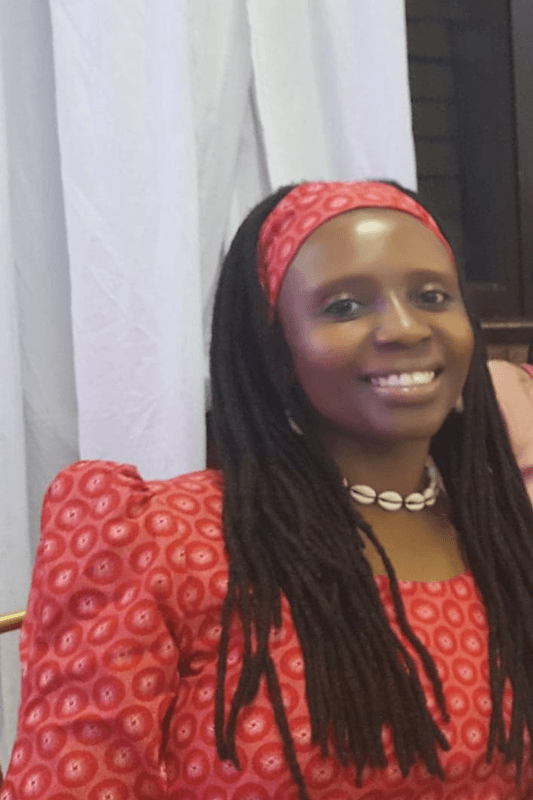
How do you navigate and negotiate motherhood and professional life?
It is hard. I look at my mother and mother-in-law who have made it look so easy and think, what superpower do they have? To be honest, at times I don’t know what I’m doing. I am an International Child Development Program (ICDP) facilitator, but at times that goes out the window. In general, it’s not easy to juggle several things at once, but it becomes even more of a challenge or issue because everybody has an opinion on how children should be raised. I was hardly on social media for a while because I refused to compare myself and just decided to do me and what works for me.
In my case, I had to juggle motherhood, a 100% job in a middle management position, being a wife, a PhD student and trying to start a business. Madness, I know. Honestly, my mother-in-law helped me navigate much of this, even my father-in-law would step up because both my husband and I were busy. My mum has also visited and helped a bit because, unfortunately, it’s a process to visit from SA. So, I had to work with what I had.
These days, I work on a 50% basis, and work on my own business the other 50%, while at the same time, having an overview of the children’s activities. We are definitely in a better place because I have made my family my priority and purpose. In coaching we like to talk about our Why. My family, especially my kids, are my Why. It feels good to be fully present.
When you aren’t working, how do you spend your free time?
Cleaning the house 😊. It depends, if I’m really tired then it’s watching a sitcom with the kids and/or hubby, or playing board games. We are a family that loves to read, so reading a good book is also a way I pass time. We also do the “tur”, go for walks, and hang out at my in-laws. But most of all, we love to dance and listen to music. The children enjoy a wide genre, and so it is interesting to speak to them about music. They are also interested in the news and ask a lot of questions, sometimes difficult ones where I need to conduct research in other to respond to them. Currently, they are very interested in the Corona virus. I was recently asked by my 4 year old, “So when was the first virus in the world and how many people died?” Then my 7 year old starts with a question “if there is a God question, why are so many people dying?” She is also wondering if she can stage a protest against leaders who are not doing a good job. So yes, we have some interesting conversations. Most importantly I also use any opportunity I can get to create ‘quality’ time for myself.
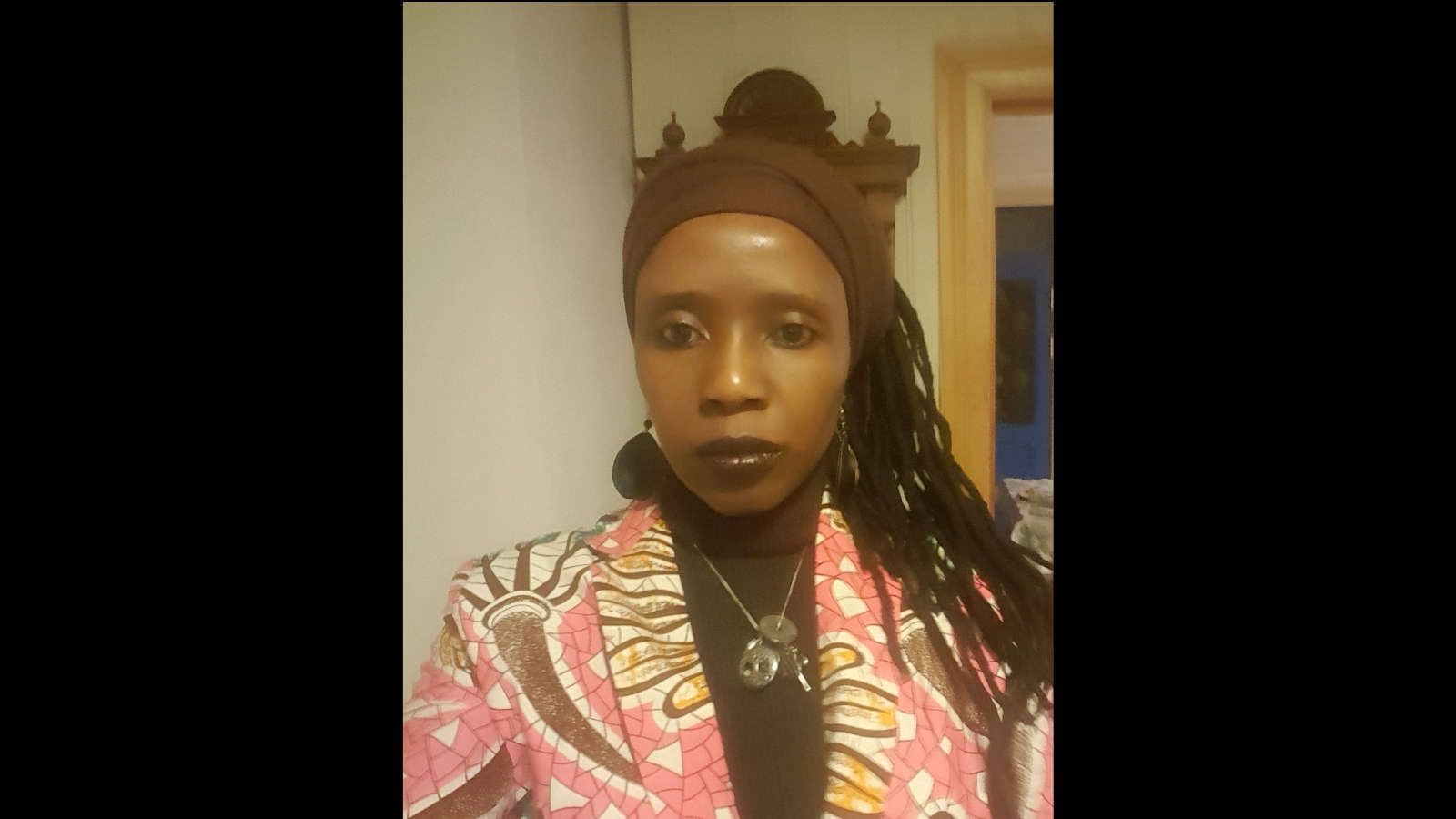
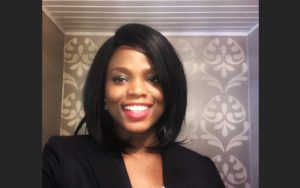
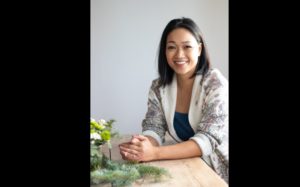
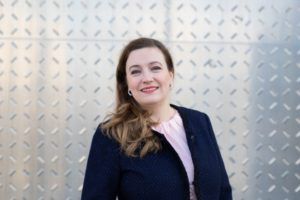
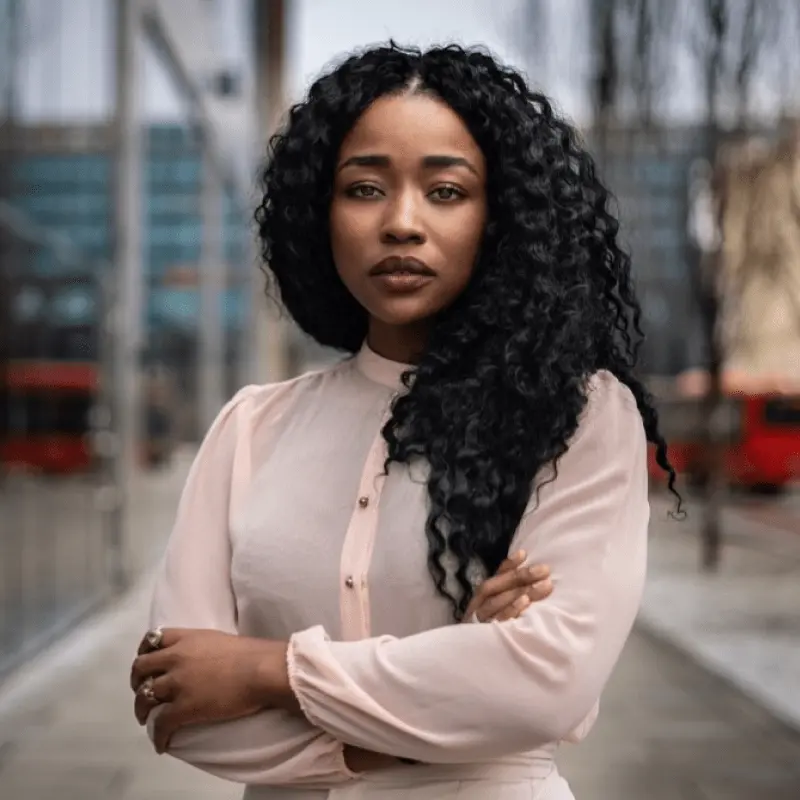
What an inspiration! So, so proud of you, Dr Sarifa!